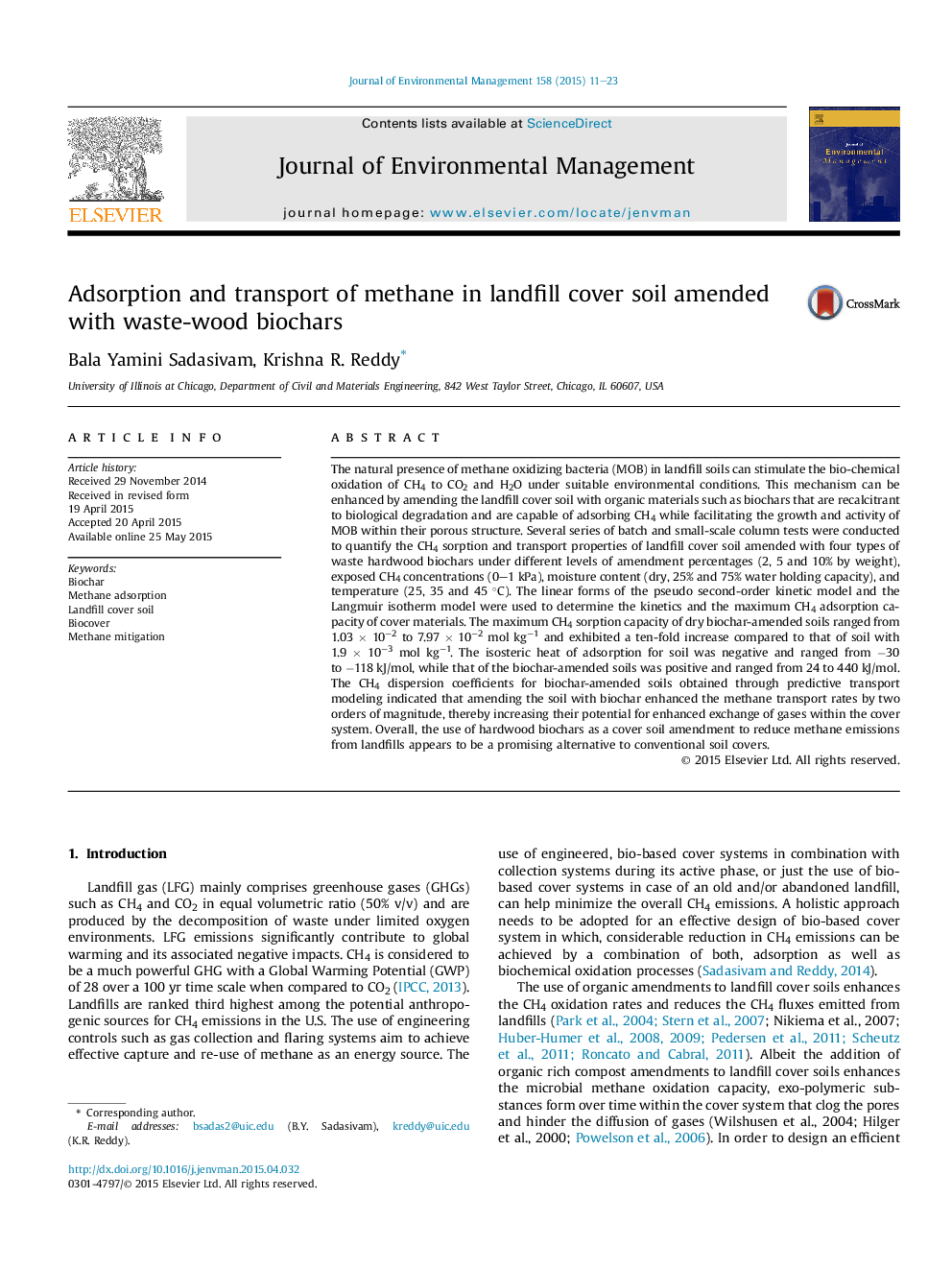| Article ID | Journal | Published Year | Pages | File Type |
|---|---|---|---|---|
| 1055574 | Journal of Environmental Management | 2015 | 13 Pages |
•Methane adsorption of soils amended with wood-based biochars was investigated.•The effects of moisture and temperature on methane adsorption were quantified.•The effects of flow rate on methane transport and diffusion were quantified.•Methane adsorption, diffusion and transport in biochar-amended soils were modeled.•Biochar-amended soils exhibited enhanced methane transport and adsorption.
The natural presence of methane oxidizing bacteria (MOB) in landfill soils can stimulate the bio-chemical oxidation of CH4 to CO2 and H2O under suitable environmental conditions. This mechanism can be enhanced by amending the landfill cover soil with organic materials such as biochars that are recalcitrant to biological degradation and are capable of adsorbing CH4 while facilitating the growth and activity of MOB within their porous structure. Several series of batch and small-scale column tests were conducted to quantify the CH4 sorption and transport properties of landfill cover soil amended with four types of waste hardwood biochars under different levels of amendment percentages (2, 5 and 10% by weight), exposed CH4 concentrations (0–1 kPa), moisture content (dry, 25% and 75% water holding capacity), and temperature (25, 35 and 45 °C). The linear forms of the pseudo second-order kinetic model and the Langmuir isotherm model were used to determine the kinetics and the maximum CH4 adsorption capacity of cover materials. The maximum CH4 sorption capacity of dry biochar-amended soils ranged from 1.03 × 10−2 to 7.97 × 10−2 mol kg−1 and exhibited a ten-fold increase compared to that of soil with 1.9 × 10−3 mol kg−1. The isosteric heat of adsorption for soil was negative and ranged from −30 to −118 kJ/mol, while that of the biochar-amended soils was positive and ranged from 24 to 440 kJ/mol. The CH4 dispersion coefficients for biochar-amended soils obtained through predictive transport modeling indicated that amending the soil with biochar enhanced the methane transport rates by two orders of magnitude, thereby increasing their potential for enhanced exchange of gases within the cover system. Overall, the use of hardwood biochars as a cover soil amendment to reduce methane emissions from landfills appears to be a promising alternative to conventional soil covers.
